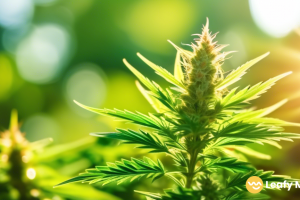Do you ever wonder about the rich history of the cannabis industry and how it has evolved? Well, you’re not alone. Many individuals and organizations are recognizing the importance of preserving this history and are taking initiatives to protect the industry’s heritage.
From documenting strains and cultivars to establishing cannabis museums and archives, there are various efforts underway to ensure that the past of this thriving industry is not forgotten.
One important aspect of preserving cannabis history is documenting the various strains and cultivars that have contributed to the industry’s growth. This involves collecting and cataloging information about different cannabis varieties, including their genetic makeup, effects, and origins. By doing so, researchers and enthusiasts can have a comprehensive understanding of the diverse range of cannabis plants that have existed throughout history.
Additionally, efforts are being made to establish cannabis museums and archives, which serve as dedicated spaces to showcase the cultural, historical, and scientific significance of cannabis. These institutions not only provide a platform to educate the public about the industry’s past but also serve as repositories for artifacts, documents, and other records that contribute to the preservation of cannabis history.
Key Takeaways
- Underground growers have played a key role in cultivating high-quality cannabis strains in hidden locations.
- Cannabis activists have faced backlash and stigma while fighting for legalization.
- Cannabis has a rich cultural significance, being used for spiritual, medicinal, and recreational purposes throughout history.
- Preserving oral histories is essential to ensure the knowledge and legacy of cannabis pioneers are not forgotten.
Documenting Strains and Cultivars
You may be wondering how you can play a part in preserving the rich history of the cannabis industry. Well, one way you can contribute is by documenting the various strains and cultivars that have made this industry what it is today.
By keeping detailed records of the different types of cannabis plants, their origins, and their unique characteristics, you are helping to ensure that future generations have access to this valuable knowledge.
Documenting strains and cultivars is essential because it allows us to trace the evolution and development of different cannabis varieties over time. It helps us understand the genetic lineage of each strain, as well as its specific traits and effects. This information is not only fascinating from a historical perspective, but it also has practical applications for growers, breeders, and consumers.
By documenting strains and cultivars, you are contributing to the preservation of the cannabis industry’s rich heritage. You are helping to ensure that the knowledge and wisdom of the past are not lost, but instead passed down to future generations.
Establishing Cannabis Museums and Archives
Creating cannabis museums and archives allows for the celebration and preservation of the fascinating journey and culture surrounding this influential plant. By establishing these institutions, you’re providing a space where the rich history and heritage of cannabis can be explored and appreciated.
Here are three reasons why cannabis museums and archives are important:
- Preserving the past: Cannabis has a long and storied history, with its roots dating back thousands of years. By creating museums and archives, you’re ensuring that this history isn’t forgotten. Visitors can learn about the various uses of cannabis throughout time, from its medicinal properties to its role in cultural practices. Preserving this knowledge allows future generations to understand the impact of cannabis on society and appreciate its significance.
- Educating the public: Cannabis has often been misunderstood and stigmatized. By establishing museums and archives, you’re providing a platform for education and dispelling myths surrounding the plant. Visitors can learn about the scientific properties of cannabis, its potential medical uses, and its cultural significance. This knowledge can help break down stereotypes and promote a more informed and open-minded discussion about cannabis.
- Fostering a sense of community: Museums and archives are not just places to learn, but also spaces for people to come together and share their experiences and stories. By creating cannabis-focused institutions, you’re fostering a sense of community among enthusiasts, cultivators, and researchers. Visitors can connect with like-minded individuals, exchange knowledge, and contribute to the ongoing narrative of cannabis. This sense of community helps strengthen the industry and ensures that its heritage and culture continue to thrive.
Advocating for Legal Protection of Historical Cannabis Sites
Advocating for legal protection of sites with historical significance in the cannabis industry ensures the preservation of their cultural value. By advocating for legal protection, you’re helping to safeguard these sites from destruction or irreversible changes.
Historical cannabis sites hold immense cultural value, as they provide a window into the past and showcase the development and evolution of the industry. These sites may include old dispensaries, cultivation sites, or even locations where significant events took place.
By protecting these sites, you’re preserving the history and heritage of the cannabis industry for future generations to learn from and appreciate. The stories and experiences associated with these sites are invaluable, and legal protection ensures that they’re not forgotten or lost.
Advocating for legal protection of historical cannabis sites also sends a message that the industry’s rich heritage deserves recognition and respect. It acknowledges the contributions of those who paved the way for the current cannabis industry and highlights the progress made over the years.
Supporting Research and Education on Cannabis History
Exploring the untold stories of cannabis opens a window into a world full of rich knowledge and captivating narratives. By supporting research and education on cannabis history, you can contribute to the preservation of this industry’s heritage.
Research is important in uncovering the forgotten tales and historical significance of cannabis, shedding light on its cultural and medicinal use throughout the years. By funding research projects focused on cannabis history, you can ensure that these stories are not lost to time. This research can provide valuable insights into the evolution of the cannabis industry, the diverse communities that have been involved, and the social and political contexts that have shaped its perception.
Education is another key aspect of preserving cannabis history. By supporting educational initiatives, you can help create resources and programs that teach the public about the rich heritage of cannabis. This could include developing curriculum materials for schools, organizing workshops and conferences, or creating online platforms that offer accessible information about cannabis history.
Preserving Oral Histories and Personal Accounts of Cannabis Pioneers
Take a trip down memory lane as cannabis pioneers share their colorful stories and experiences, painting a vivid picture of the industry’s early days. These personal accounts provide invaluable insights into the challenges, triumphs, and innovations that shaped the cannabis industry into what it is today.
As you listen to these pioneers, you can’t help but be transported back in time, witnessing the moments that laid the foundation for the thriving industry we see today.
- Hear about the first cannabis dispensaries that operated in secret, serving as safe havens for enthusiasts in a time of prohibition.
- Listen to tales of underground growers who risked it all to cultivate high-quality strains in hidden locations, honing their craft and developing new techniques.
- Discover the stories behind cannabis activists who fought tirelessly for legalization, facing backlash and stigma in their pursuit of justice and freedom.
- Gain a deeper understanding of the cultural significance of cannabis, as pioneers share how it was used for spiritual, medicinal, and recreational purposes throughout history.
Through preserving these oral histories, we can ensure that the knowledge, experiences, and legacy of cannabis pioneers are not forgotten. Their stories serve as a reminder of the resilience and determination that shaped the industry, inspiring future generations to continue pushing boundaries and advocating for the plant they love.
Frequently Asked Questions
How are strains and cultivars documented and classified in the cannabis industry?
Strains and cultivars in the cannabis industry are documented and classified based on their genetic lineage, characteristics, and effects. This allows growers and consumers to identify and select specific varieties that best suit their needs and preferences.
What are some examples of cannabis museums and archives that have been established?
Some examples of cannabis museums and archives that have been established include the Hash Marihuana u0026amp; Hemp Museum in Amsterdam, the Cannabis Museum in Barcelona, and the Weed Museum in Los Angeles.
How are historical cannabis sites advocated for legal protection?
Are you curious about how historical cannabis sites are advocated for legal protection? Well, it starts with passionate advocates who tirelessly fight for the recognition and preservation of these important landmarks.
What are some research and education initiatives focused on cannabis history?
Some research and education initiatives focused on cannabis history include the Cannabis Museum, which aims to educate the public about the plant’s cultural significance, and the Cannabis Archive Project, which documents the industry’s history for future generations.
How are oral histories and personal accounts of cannabis pioneers preserved and shared with the public?
To preserve and share oral histories and personal accounts of cannabis pioneers, initiatives rely on methods like video interviews and digital archives. These efforts ensure that the invaluable stories and experiences of the past are passed down to future generations.











Leave a Reply